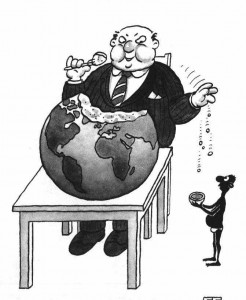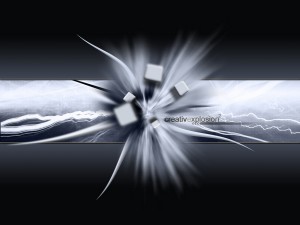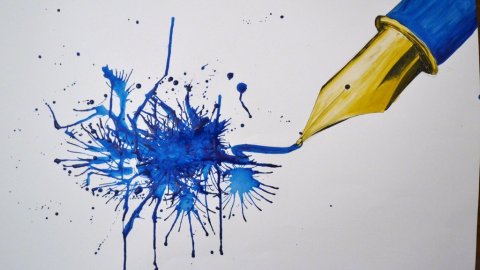Like many people, I’ve been gobsmacked by the story about the man in Florida who was swallowed by a sinkhole as he slept in his bed. As of this writing they haven’t even found and recovered his body. Not only is this the stuff of nightmares, it’s a metaphysical metaphor for the nation we’ve become.
 It’s important to remember that even after dropping the atomic bombs on Hiroshima and Nagasaki, the United States was still, on balance, a force for good in the world. But the fact that conservatives and liberals alike now refuse to face is that the United States is no longer a force for good, but has become a fount of darkness in the world. We need a psychological revolution more urgently every day.
It’s important to remember that even after dropping the atomic bombs on Hiroshima and Nagasaki, the United States was still, on balance, a force for good in the world. But the fact that conservatives and liberals alike now refuse to face is that the United States is no longer a force for good, but has become a fount of darkness in the world. We need a psychological revolution more urgently every day.
The truth becomes more undeniable by the week. At the end of last week, the Senate chaplain, opening the absurd ‘sequester’ session after our government wallowed in the muck of gridlock for months, intoned: “Rise up, O God, and save us from ourselves.” That has to be one of the stupidest prayers in the history of man.
Few people, whether they call themselves Christian or not, have faith in a higher power anymore. But there is an infinite, inseparable intelligence that permeates the universe; it just can’t save humans from themselves. Besides, prayer as supplication is weakness; and perhaps prayer only has meaning when we ask for forgiveness and understanding.
What makes many Democrats distasteful is that they see themselves as separate and above the national mess, attributing it to Republican intransigence rather than the country as a whole. Democrats refuse to acknowledge the underlying disease in the American body politic, and continue to blame Republican extremism, which is merely symptomatic of it.
Denial of what this culture has become, which shows up in the pigheaded shallowness of its most esteemed commentators, begins with willful blindness and is fed by asinine comparisons. Fixations on supposedly ascendant nations and their questionable virtues, particularly China, have become the stock in trade of pundits with nothing left to say.
What is striking about the Chinese is not the studiousness and work ethic of its people, much less some fictional fusion between their moral and intellectual spheres of life, but how similar their acquisitive, consumeristic behavior has become to ours in America.
Nothing epitomizes the misapprehension more than nonsense like this, put forth by a prominent American commentator: “the Chinese learning process itself is…[meant] to perfect the learning virtues in order to become,  ultimately, a sage, which is equally a moral and intellectual state.”
ultimately, a sage, which is equally a moral and intellectual state.”
The absurd idea is that the source of China’s “awesome motivation explosion” is that China “tends to see learning as an arduous process they undertake in order to cultivate virtues inside the self.” That might hold water if the Chinese were any better human beings than Americans, but they’re not. Increasingly, they’ve shown the same unfortunate traits that have brought America to this barren pass: greed, self-concern, consumerism and nationalism.
Nothing exemplifies this more than the insatiable appetite for ivory in China. “The Chinese hold the key to the elephants’ future,” said Iain Douglas-Hamilton, founder of Save the Elephants. “If things continue the way they are, many countries could lose their elephants altogether.”
There are two kinds of learning—accumulative and non-accumulative–and it is a philosophical and existential failure of the first order not to make the distinction between them. Knowledge is accumulative but understanding is not, and the accretion of experience does not produce wisdom. Understanding grows through negation and insight, not through ‘diligently strengthening the self in the fusion of intellectual and moral impulses.’
Conflating these two completely different meanings of learning worsens the stagnation and stultification of both the intellect and the spirit, of cognition and character. And superficial comparisons between American and Chinese learning modes only exacerbate the problem, adding to the moral decay and spiritual deadness at the core of America’s globalizing culture.
When a nation perishes, the first requirement of regeneration is ending the denial and lies that perpetuate the deadness with dreams of past greatness.
 When the flame goes out in a land, the people have two choices. They can pursue individualistic pleasures and comforts, while their elites hack away at dead branches, refusing to examine equally dead roots. Or they can turn and face the fact of what they have become as a people and nation, and look to humanity with humility and caring to regenerate their culture and country.
When the flame goes out in a land, the people have two choices. They can pursue individualistic pleasures and comforts, while their elites hack away at dead branches, refusing to examine equally dead roots. Or they can turn and face the fact of what they have become as a people and nation, and look to humanity with humility and caring to regenerate their culture and country.
When I was young, the mirage of California was to Michiganders as the image of China is to Americans now—an exotic, scary and alluring land of great wealth, creativity and vitality.
Now, nations have become in the relations between their peoples as the states used to be to each other in America—places of relative diversity overlaid by a shared core. Rather than a common character in people of a given nation, the shared core now is the human crisis, which confronts every person equally everywhere on the planet that has enough food to eat and time to be on the net.
The question is: Can a creative explosion occur in a dead land, where the people have expired, or does it require a people in whom the flame of life still burns?
There is no evidence of anything stirring except the ground beneath our feet in America. But can a revolution in consciousness ignite anywhere on the planet in the present age?
We can become angry and numb about how rotten people have become, or get up when we fall down or are knocked down, no matter how many times, and learn and grow in non-accumulative understanding.
Can man’s nadir be the human beings’ finest hour?
Martin LeFevre

